Mallence Bart-Williams was born in Cologne (Germany) from a German mother and a Sierra-Leonese father. Her father, Gaston Bart-Wiliams, was a writer activist and the first film director of Sierra Leone. After the ten year long civil war in Sierra-Leone, she was finally able to revisit to her father’s country in 2008, where she met street children from the notorious Lion Base Gang. She felt compelled to do Something and eventually founded the creative collective Folorunsho with 21 street kids. Their design collaborations were sold internationally and with the proceeds the kids were able to go to school and pay for school fees accommodation, etc… Mallence is a multifaceted creative social entrepreneur and has explored the realms of writing, publishing, film making, creative direction and fashion design among other things. She pursued her studies in economics and finance in Paris, Singapore, and Great Britain. Today she lives and works across the globe, producing an all-natural cosmetics line in Asia, runs an educational fund for orphans in Sierra Leone and works with Young innovators from the African continent.
Can you describe yourself in few words for our readers?
I never cease to surprise myself, so it is hard for me to describe myself in a few words…I love horses, sunshine and the ocean. I judge people based on their souls not on their titles. I am a free spirit that is rooted in tradition and traditional values. I am intolerant to injustice and naturally rebel against it. Rules are a temptation; I like to break them. I love nature, as it is God’s most tangible representation and I find most answers there. I don’t work for money. I love what I do and I do what I love no matter what, money being a mere byproduct somewhere along the way. I don’t put numbers on what I do. I detest labels and categorizing people like myself who do not fit into any particular box.
You are from Sierra-Leone. You were born in Germany, went to school in France and Great Britain, Singapore, Germany. Your cosmetics brand is produced in Indonesia. How has this cultural melting-pot influenced your path?
The multicultural diverse mix is a reflection of who I am. I am a citizen of this world, not of a particular place or country. I have African, European and Asian roots, so I am pretty much at home anywhere. I live in my body. My body is my home. I cherish it and it can be found anywhere on the globe. Work/Play/Life is wisely intertwined in my case. It is all part of a beautiful blend that is called Mallence.
How would you encourage people living in the diaspora to invest in their continent?
Home is where your heart is, and I believe that this is what one should follow in order to be successful in a holistic sense. If the calling is there, one shall follow it. If it is not, it is pointless to embark on that course. However, that impulse might be felt at a later point in life. Some of the world’s fastest growing economies are in Africa and the opportunities are vast. In 2030 an estimated 50% of all 18-year-old citizens of this world will be living in Sub-Saharan Africa. To a greater extent, Africa is still a virgin ground and the only right thing to do is for Africans to reclaim it, nurture it and protect it.
Did you have any issues to launch your projects in Sierra-Leone?
Many! However, my experiences taught me to assess obstacles as an opportunity. This forces me to reassess and reevaluate my options. It helps me grow and reinvent myself constantly. In my opinion obstacles contribute to producing the best results, whilst they pledge allegiance to my desire to keep on surprising myself as I go along. Obstacles are challenges that prevent me from ever getting bored, they refine my skill set, improve stamina and force me to remain on my toes. Today I look at it from that perspective and can actually appreciate obstacles or issues. They always add great value to the outcome of my work. I love working in environments where nothing is static or too predictable. Predictable environments are not for me; they bore me too easily.
READ MORE: The Orphan who wanted to change the world
Can you tell us more about Folorunsho and your « sharity » program ?
Folorunsho means ‘Born under the eye of God’ in Yoruba and it is also my middle name. I believe that in life as humans we have the duty to serve ourselves and to serve a greater better collective good. The SELF in turn is governed by a higher power that dictates one’s moral values. I operate by those principles and certain undertakings are born from the intention to serve a greater good that includes me whilst it is beyond me. Such projects are ‘Born under the eye of God’. It is God that plants a seed in me by sparking my imagination and it is God that sees it to its finishing, while I take care of some of the ‘in-between’.
Folorunsho’s projects do not have a particular form, it could be anything, anywhere at any given time. They are usually creative in nature and follow the described principles. They are geared to promote ethical capitalism via the act of SHARITY in order to empower people that have been marginalized. I believe that one only makes a real impact in the life of another person if one has been impacted proportionally. Therefore, I termed it SHARITY, which describes an exchange – an act of sharing. Sharing an experience, values, resources, ideas, efforts, etc.
In January 2015, you made an incredible speech at TEDxBerlin. You talked about the continuous destabilization of the African markets and the exploitation of our resources. Do you think Africa can get rid of the occidental « help »?
In my opinion, Africa is presently in ‘puberty’ rebelling against its adoptive parents who do not understand Africa’s culture and therefore, try to undermine and extinguish it. Africa is in a phase where it is reassessing its identity, determining its strength, its power. It is growing, it is excited, it is angry, it is hopeful and full of dreams and ideas. Like a typical ‘teenager’ with all the potential in the world. Africa will not stop until it will regain its rightful position at the crown of the pyramid.
How can we, Africans, change the « public » image of our continent definitely?
By changing our own perspective of Africa and our perception of ourselves. Represent your ‘home’ wisely and with dignity according to how your parents raised you. Keep internal issues internal: fix them, solve them, be part of the solution. Do not seek for help or validation outside of your ‘home’. I believe that is how a strong ‘family’ must operate. As with any family, one must encounter differences and there must be obstacles, but no matter the magnitude crucial affairs must be kept internal. Make your family and your ancestors proud. Every African knows what that means.
According to you, what is the main issue of Africa?
Traditional values have been distorted and destroyed, therefore we presently operate like a ‘dysfunctional family’ that seeks help from a bunch of “accredited therapists,” who do not have the capacity nor the true interest to fix the problem. The work of most therapists is profit oriented. An internal problem is an internal problem and will never be solved by an outside force. We need to collectively correct the narrative: remember. Once all members have regained their memory and our story has been rectified, structure and order will happen as a logical consequence. Presently Africa suffers of a virus that needs to be cured. It is called ‘European – Influencia’. Africa needs to boost its immune system, dress warm, rid itself of the virus and regain its strength and balance.
Which advice would you give to someone who wants to invest in Africa?
Assess your grounds as you would do with any area of investment. Be sure that your motivation is not solely monetary driven, but that you actually define ‘profit’ or ‘success’ by adding something unique to the landscape.
What are your dreams/projects for the future?
It is my dream to see Africa’s wealth benefiting all Africans on the continent in a global context and in ALL aspects of life.

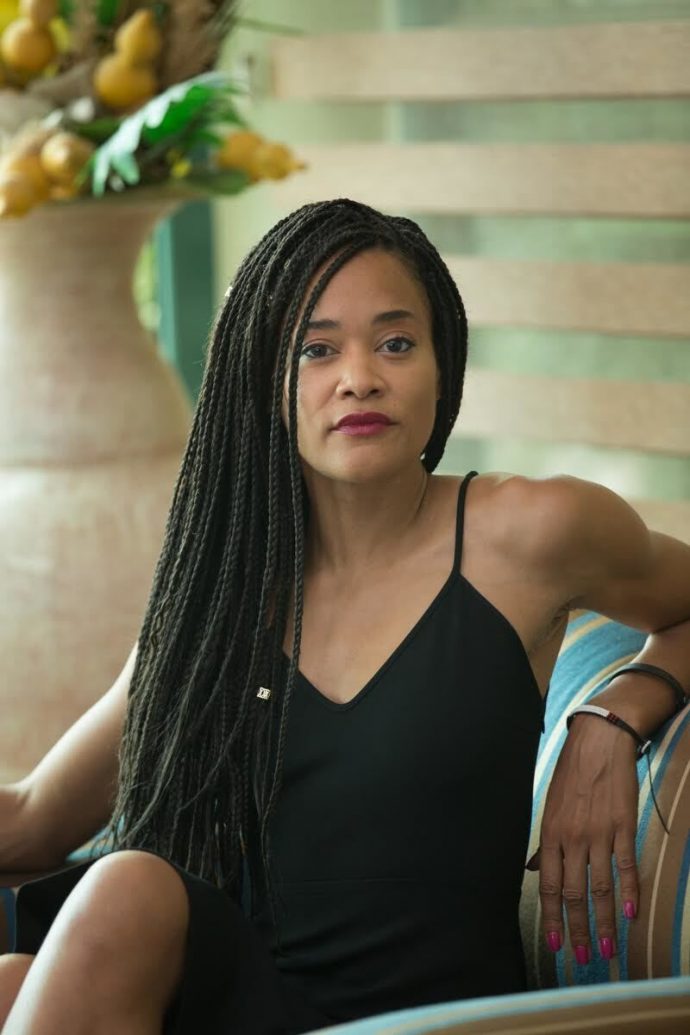
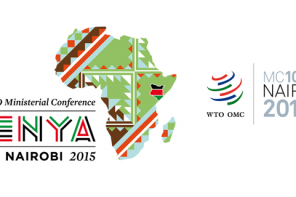
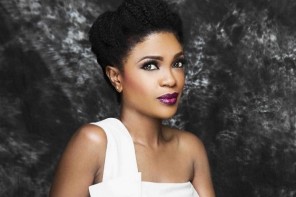
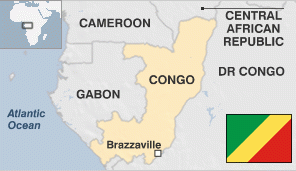
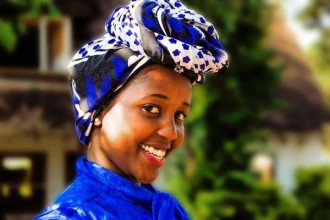
Hi,
Wow… your page is more Overwhelming than that of your speech in Tedx Berlin.
I would love to say Alhamdulillah for Mallence Bert. I’m deeply inspired by all have read about, we need more and many more like minded like you in Africa. Thanks for your efforts of good willl to our planet, thanks for being a true representative of humankind and thanks for being God fearing.
How can I be part of this inspiring project ?
Thank you for interviewing our sister, Mallence Bart-Williams. Through your esteemed site, allow me to convey to her my most heartfelt gratitude for her eloquent and impeccable TEDxBerlin presentation on why our beloved countries and MOTHER continent, Africa, remains so impoverished despite sitting on some of the largest reserves of all kinds of mineral wealth and other resources. I asked myself the same question way back in 1992 when I was doing economics for A-levels in Uganda. I wondered why the Uganda shilling was always depreciated against foreign currencies, and especially the United States dollar and the British pound, yet we have far much more natural resources than these countries.
By the time I started law school and finished in 1996, I had pretty much found the answers to this vexing question that she eloquently answered: the ugly hand of colonial oppression and an international legal architecture that allows our former masters to continue to reproduce, using a new set of chiefs, aka presidents and elites around them, the one-sided exploitation of our resources. I learnt the brutal reality of how the former colonial powers, and especially the French, gave its former colonies paper independence and systematically eliminated leaders in African countries that tried to undo their exploitative projects. In the case of France, it is a sad dirge that we sing, from the brutal elimination of Sylvanus E. Olympio of Togo, Thomas Sankara of Burkina Faso, to most recently Laurent Gbagbo. These leaders attempted to get true economic and political independence for their countries; that is a crime in the eyes of the former colonial powers. Therefore, I agree entirely with what she said at the TEDxBerlin talk. It made me happy because it reminded me that our women were masters our history; I still remember an instance in the early 1990s where one of my aunts had to correct an elder for mixing up the genealogy of one of my relative’s family tree! She set the record straight with candor and eloquency and she was applauded.
And our sister Folorunsho’s, I like her middle name, synopsis of our current problems, is also spot on: our culture and way of life have been destroyed and labelled uncivilised and repugnant to western civilisation – it is like our heads have been cut off and artificial ones, with a western brain-cell that envisions the world in western worldview. I like this most in her interview: ‘Traditional values have been distorted and destroyed, therefore we presently operate like a dysfunctional family that seeks help from a bunch of “accredited therapists,” who do not have the capacity nor the true interest to fix them.” This is the most accurate and forthright statement about our fate in Africa today and I can agree no more with her. A people without a culture and tradition is a people without a moral compass and floating wherever the winds blow them; Kudos, our sister!
And she is right, we must remember our God-given cultures and its value systems. The challenge is for me to remember, especially in the context of a western education system that perpetuates the inferiority of our cultures and worldviews! And I started this way back the 1980s but shelved it for a host of reasons.
She has reawakened me again. I hope I can meet her and greet her in the near future! I wish our sister Folorunsho God’s protection and health and success in all she is doing for the downtrodden.
Hi there,
I have found you on youtube! Very inspiring. Is there a way I can help in any way? I am originally from Rwanda and I am a qualified accountant working as Finance Manager in the UK. I can work as a volunteer for you in any project you may undertake. I can assure you, Africa needs Diaspora Africans as we are kind of awakened as compared to Africans who haven’t lived abroad. I am available if you need someone to volunteer. I can even do anything for you guys including working in the dirt (never mind being an Accountant) if this will mean to help or educate fellow Africans. If I can help in anyway, you can send me an e-mail. I am also on whatsapp on +44 7448 770 770